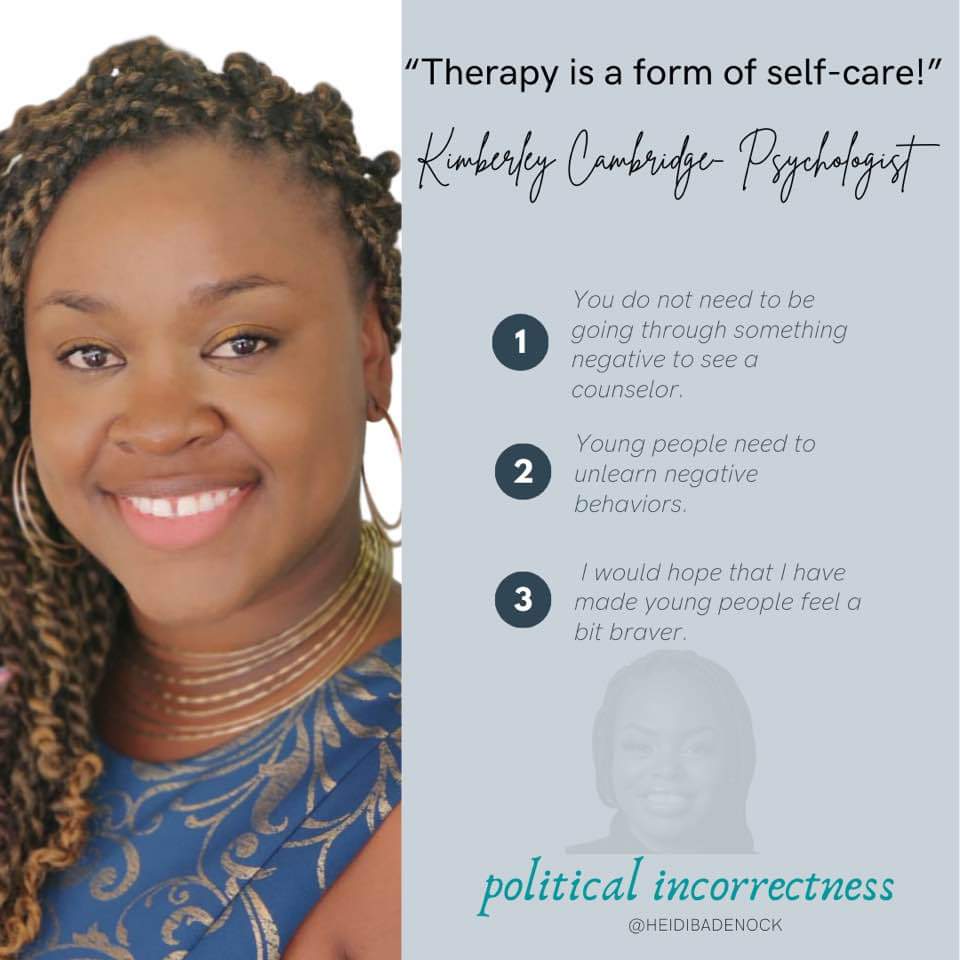
By
Heidi Badenock
Having heard a lot about the benefits of therapy, it has never been so clearly put as now by psychologist Kimberley Cambridge. Therapy should be to us as doing our nails or having alone time. Accordingly, it was important to begin this series in a place of wholeness and positivity, particularly when we are all individually and collectively faced with so much fear and doubt in this period of uncertainty.
Kimberley Cambridge is a psychologist attached to the Milton Cato Memorial Hospital where she works with children who are autistic and have speech impairments, young persons with conduct disorders, and victims of child sexual abuse.
Kimberley easily sees a sector of SVG that many of us do not which has resulted in many sleepless nights for her. Below is a summary of our conversation on everything therapy and her hopes for tomorrow.
Growing up Vincentian may mean that you think that therapy is only useful in extreme circumstances, but everyone has days when they are not doing or feeling their best, where they are unable to handle a situation, or simply need someone to talk to; when those days come, seeking therapy can make all the difference.
Unfortunately, in SVG the stigmas attached to mental wellness and those who seek therapy requires that there be significant work done to begin the process of unlearning these negative beliefs. Therapy is not just for when things are wrong. It can be for when you are feeling great and want to learn how to maintain behavior which supports that feeling, or if you simply need someone to talk to.
Thankfully, there has been an increase in persons coming forward to seek help, with persons walking in off the street saying that they need to talk to somebody.
Therapy is a useful tool for young persons who often hear that their problems must be taken to the lord in prayer, or that persons outside the family cannot be trusted, or even that the village obeah man is the best solution to a problem. The cycle that exists however, will require a great effort to break it, to ensure that our youth do not carry the same toxic heaviness that currently exists into their futures.
More marketing, more awareness, more information about the benefits of therapy is necessary for more people to be willing to reach out for help.
Ms. Cambridge’s wish is for more men to seek therapy and that more of them be willing to sit and talk about the burdens they carry.
If more men sought therapy, ultimately women will feel safer, being able to sit and have lunch without feeling harassed or being able to go out alone to exercise. If the root of the problem men face is addressed, then the path to repairing our communities can be cleared.
With therapy, women will be able to have more open and honest conversations not only about matters affecting them, but also about the ills in society without fear of attack. Men will be better able to accept criticisms and confront their friends and peers about their unacceptable behaviors.
Kimberley hopes that through her work, she has been able to allow more young persons to feel empowered, a bit braver, a bit more willing to say no. To say no to things that they are uncomfortable with, spaces, places, and people. To be ok with people not liking them, to know that it is ok to say no, even if it is uncomfortable in the moment. To not be afraid and to “go brave”.





